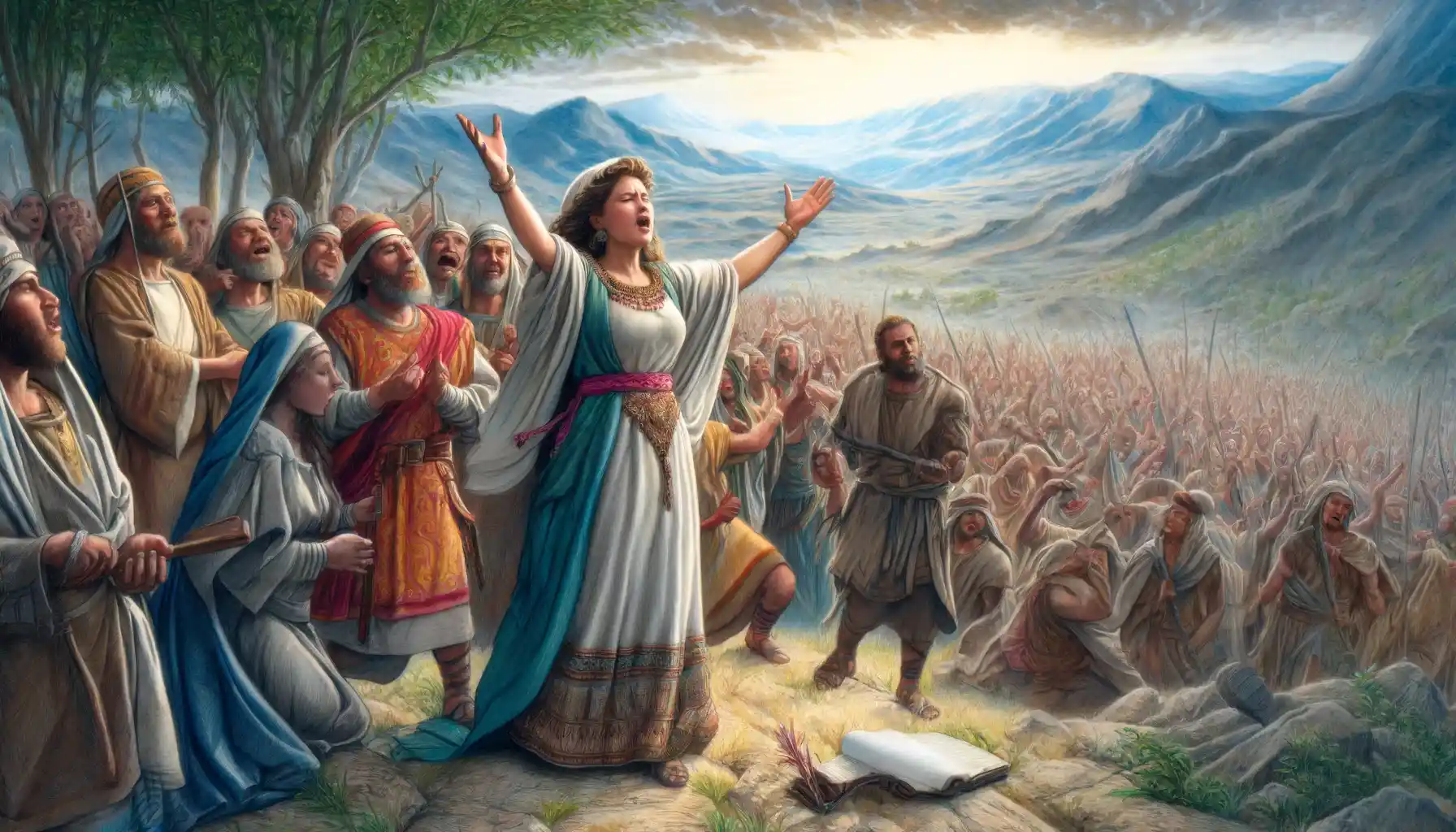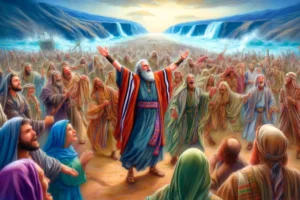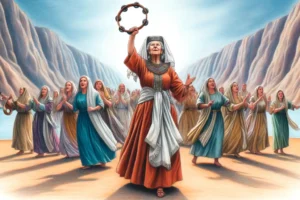
The Song of Deborah (Judges 5)
“The Song of Deborah,” found in Judges chapter 5, is a notable biblical passage with significant historical and theological relevance. Here are some key facts about this victory hymn:
- Type of Literature: It is one of the oldest examples of Hebrew poetry and a victory hymn, celebrating the triumph over the Canaanite armies.
- Authors: The song is attributed to Deborah and Barak, who sang it together following their military victory.
- Historical Context: It was sung after the Israelite forces, under the leadership of Deborah and the military command of Barak, defeated the Canaanite king Jabin and his commander Sisera.
- Themes: The song praises God for the victory over the enemies and criticizes the tribes of Israel that failed to assist in the battle. It highlights themes of leadership, courage, and divine intervention.
- Literary Significance: This song is celebrated for its poetic structure and vivid imagery, which provide insight into the cultural and spiritual life of ancient Israel.
- Role of Women: The song notably highlights the roles of women, not only through Deborah’s leadership but also through Jael’s decisive action in killing Sisera, emphasizing the unexpected agents of God’s deliverance.
- Cultural Impact: “The Song of Deborah” has been an influential text in understanding the ancient Israelite perspective on war, leadership, and divine justice.
“The Song of Deborah,” recorded in Judges 5, stands as one of the seminal poetic texts in the Bible, rich in both its historical backdrop and its theological depth. This victory hymn, attributed to Deborah and Barak, encapsulates a moment of triumph and divine intervention in the history of Israel, providing profound insights into the cultural and spiritual life of the ancient Israelites.
Historical Context
The song was composed and sung following a pivotal military victory over the Canaanite forces led by King Jabin and his commander Sisera. This victory, as recounted in Judges 4, was significantly influenced by the leadership of Deborah, a prophetess and judge of Israel, and the military actions of Barak, whom Deborah summoned to gather an army. The battle narrative highlights God’s intervention on behalf of Israel against a technologically superior foe, specifically in the form of a miraculous storm that hampered the Canaanite chariots.
Literary Composition
“The Song of Deborah” is a preeminent example of ancient Hebrew poetry. Its structure is complex and artistic, employing parallelism—a common feature in Semitic poetry—where thoughts are mirrored and intensified in successive lines. The song uses vivid imagery and metaphorical language to dramatize the battle and celebrate the victory. This dramatization not only recounts the events but also interprets them through a theological lens, emphasizing the act of divine deliverance.
Themes and Theology
- Divine Intervention: Central to the song is the theme of YHWH’s sovereignty and intervention. It portrays God as the ultimate force behind Israel’s victory, who manipulates natural phenomena and human affairs to deliver His people.
- Leadership and Unity: Deborah’s leadership is a focal point, symbolizing judicial and prophetic authority, while Barak’s role underscores the theme of obedience to divine command. The song also critically remarks on the lack of participation from certain Israelite tribes, highlighting the importance of unity and collective responsibility in the face of national threats.
- Role of Women: The song is remarkable for its acknowledgment of women’s roles in the deliverance of Israel. Deborah’s leadership and Jael’s decisive action in killing Sisera challenge traditional gender roles and illustrate the unexpected ways God can deliver His people.
- Moral and Ethical Judgment: The song does not shy away from expressing moral and ethical judgments, praising those who contributed to the victory and condemning those who did not. This reflects an intrinsic belief in collective ethical responsibility and the moral implications of action or inaction in times of divine warfare.
Cultural Significance
The cultural impact of “The Song of Deborah” extends beyond its immediate liturgical or historical context. It has been interpreted as an ancient war hymn that not only celebrates a military victory but also reinforces the communal identities, values, and beliefs of the Israelite people. It serves as a historical document that provides insights into the social dynamics, political alliances, and religious beliefs of the time.
Conclusion
“The Song of Deborah” thus serves multiple functions: it is a record of historical events, a theological commentary, a piece of poetic art, and a moral exhortation. It encapsulates the interplay between human agency and divine will, highlighting the complexities of faith, leadership, and community in ancient Israel. Its enduring presence in biblical canon and liturgy underscores its importance as a source of inspiration and reflection on the power of God and the responsibilities of His people.
Leave A Reply
You must be logged in to post a comment.




1 Comment